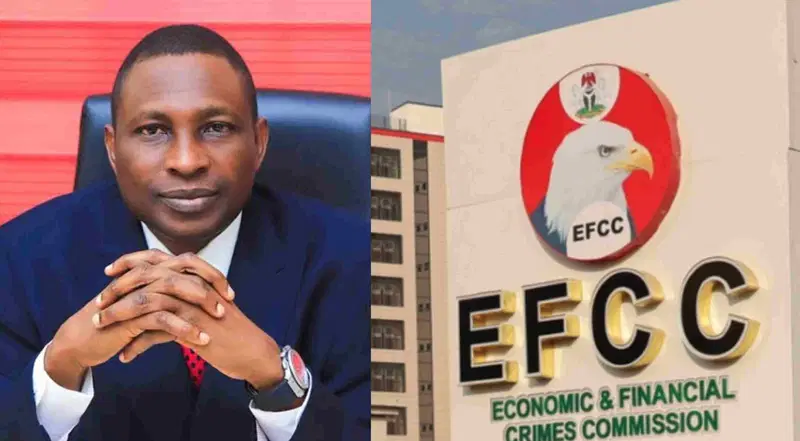Sirajo Jaja, the Accountant-General of Bauchi State, was arraigned before the Federal High Court in Abuja on Monday in connection with an alleged N1.8 billion money laundering scheme.
The Economic and Financial Crimes Commission (EFCC) filed the charges before Justice Obiora Egwuatu.
Jaja, along with Aliyu Abubakar, a bureau de change operator, and his company, were accused in the case marked FHC/ABJ/CR/101/2025.
After the charges were read, both Jaja and Abubakar pleaded not guilty.
Jaja’s lawyer, Chris Uche, requested bail for his client, arguing that the charges were politically motivated and linked to Bauchi Governor Bala Mohammed’s political aspirations for 2027.
Uche further stated that the charges did not involve any capital offenses, and Jaja had reliable sureties who could ensure his presence in court.
However, EFCC’s lawyer, Abba Muhammed, opposed the bail application, highlighting that Abubakar had previously violated an administrative bail, and Jaja had failed to meet bail conditions. Muhammed urged the court to reject the application.
In his ruling, Justice Egwuatu emphasized that bail is a constitutional right but must be applied judiciously.
He granted each defendant bail of N200 million, requiring two sureties to provide the same amount.
The sureties must be residents of Abuja, and one must hold a director’s position in a federal government agency.
Additionally, the defendants were instructed to deposit their passports with the court and obtain permission for international travel. Jaja was to be released to the Attorney-General of Bauchi until the bail conditions were met.
If the conditions were not fulfilled within the designated time, the defendants would be remanded in Kuje Correctional Centre.
The case has been adjourned to June 17 for the start of the trial.
The EFCC accuses Abubakar, his company Jasfad Resources Enterprise, and others of transferring over N1.8 billion in public funds from the Bauchi government’s expenditure account to accounts held by Jasfad Resources Enterprise between July and November 2024.
The charges include violations of the Money Laundering (Prevention and Prohibition) Act, 2022.












Leave a Reply